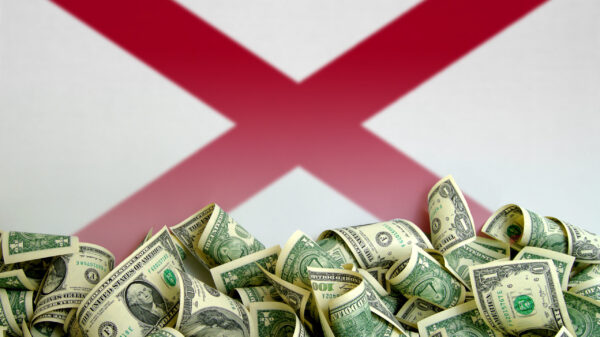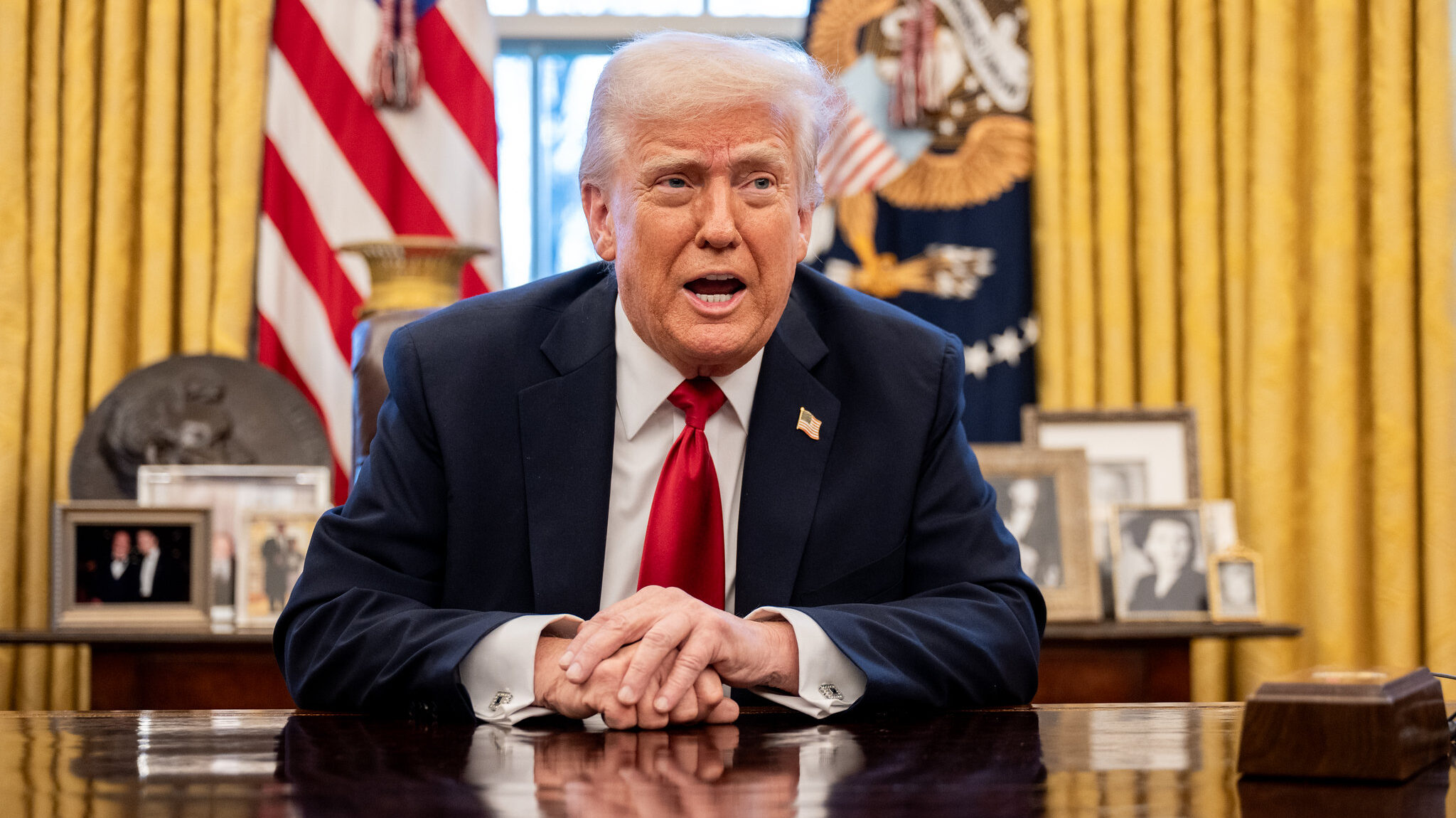|
Getting your Trinity Audio player ready...
|
Last week, after months of uncertainty, President Donald Trump began rolling out his sweeping tariff plan to disrupt the global trade market. The Trump tariffs include an indiscriminate 10 percent tax on all international goods and additional targeted, higher tariffs on specific nations — like China — which will go into effect this week.
The U.S. financial marketed has already seen a dramatic downturn in the immediate wake of Trump’s tariff announcement, with the S&P 500 declining more than more than 10 percent in two days last week and experiencing significant instability on Monday. International markets have also plummeted as numerous countries prepare for what appears to be an inevitable global trade war.
On Tuesday, APR spoke with John Dove, a professor of economics at Troy University, to better understand what exactly these tariffs are and what impact they will have on the American economy.
“So, a tariff is a tax and it’s a tax on all imported goods. So anytime that you and I purchase something from abroad, there is an additional tax placed on that,” Dove explained. “Anytime that a business, whether it be a small business or big business, imports any sort of input you know a machine or any sort of input that it uses to produce a final product, it also faces a tax. And again, obviously that has major ramifications given the international supply chain that the U.S. relies on and U.S. businesses and consumers rely on on a daily basis.”
Dove explained that one of the potential benefits of a tariff is the additional revenue it accrues for the federal government. However, while the federal government may benefit financially from Trump’s broad, indiscriminate tariffs, Dove emphasized that both American businesses and consumers will ultimately suffer.
“One reason why you might want to enact a tariff is obviously, as I said, it’s a tax on imports and with taxes that’s how we actually raise government revenue. So this is a way to generate additional government revenue,” Dove stated. “The Trump administration estimates that these tariffs will raise about $600 billion a year. [But] again, it’s important to recognize that while that number seems large it equates to roughly one month of federal spending.”
“The downside to these tariffs is that they become very economically distortionary, right? Especially in a highly globalized world that we live in. Businesses — both large and small businesses — heavily rely on the global supply chains that exist and have been built up over the past decades in order to produce low cost consumer goods and also to remain globally competitive,” he continued. “And so when we use tariffs in any capacity what that does is it actually makes it more expensive for businesses to produce goods and services, and, ultimately, those costs, those increased business costs, have to be passed on in some capacity and are typically passed on to consumers. So businesses’ costs go up, they become less competitive, and consumers ultimately pay higher consumer prices at the end.”
Dove further explained that increasing the cost of imported goods could also lead domestic producers to raise their prices, again harming the consumer.
“A good way to think about it is, suppose that — I’m here in the city of Troy — and let’s suppose that McDonald’s and Burger King are here competing with each other in the city of Troy. And for whatever reason, the city of Troy decides to impose a tax just on Burger King. Maybe they make the tax so high that it actually drives Burger King out of business, and so now we only have McDonald’s, who is a monopolist, and one of the negative aspects of monopolists is that they are able to raise prices on consumers,” Dove stated. “So, take that to the global environment that we see where we make it more difficult for global businesses to compete with domestic businesses. It does create the incentive and opportunity for domestic businesses to raise their price on consumers because there’s less competition in the marketplace.”
In rolling out his tariff plan, President Trump has claimed that the targeted, higher tariffs being levied on other countries are “reciprocal” — that they are equivalent to the tariffs already being levied by these countries on U.S. exports. Ostensibly, Trump’s wish is that raising American tariffs on these countries will ultimately lead to deescalation, with both sides eventually lowering their tariff rates and increasing trade. Dove said that he “hopes” such a scenario comes to pass, but he also stressed that the formula behind Trump’s “reciprocal” tariffs is itself inherently flawed.
“It is important to note though that when you do actually look at the reciprocal tariffs that were imposed on other countries, it was based on the estimated tariff rate that those countries were placing on the U.S. Unfortunately, the math behind that and the way that those tariff rates was determined, it was actually based on a ratio of trade flows, which actually has nothing to do with the actual tariff rates or non-tariff barriers that other countries actually impose on the U.S.,” Dove noted.
Other economists, banks and financial institutions have made the same point, criticizing Trump’s so-called “reciprocal” tariff formula as nonsensical and poorly named, as it is actually based off of trade deficits, not tariff rates.
“The actual tariff rates, average tariff rates, that other countries impose on us are significantly lower than than what the administration has actually indicated,” Dove stated.
Dove went on to argue that the Trump administration’s on-again-off-again approach to tariffs and international economic policy could result in lasting financial instability in the U.S. economy, even if the tariffs are eventually repealed.
“No matter what happens with tariff policy, given that we’ve seen that it can really just change on a dime at any minute, the uncertainty that this creates can maybe be much longer lasting. And when you increase macroeconomic and just general economic uncertainty, well, it makes it harder for businesses and consumers to plan,” he said. “And when businesses and consumers are unable to plan long term, that means that they’re willing to invest less in the U.S. economy, and when there’s less investment in the U.S. economy, that tends to to decrease wages, that tends to decrease employment, and it tends to decrease economic growth. So, the the longer run implications of this could be something along those lines.”
As a final note, Dove emphasized the regressive nature of tariffs and the financial burden that low-income Americans in particular will face as a result of Trump’s policy.
“Tariffs, fundamentally, are a tax on imports, but they’re also a regressive tax,” Dove said. “Most estimates indicate that these tariffs will end up costing the average household anywhere between $2,000 and $4,000 in increased consumer prices and that’s something that obviously impacts a relatively low-income household much more disproportionately than a relatively high-income household.”




















































